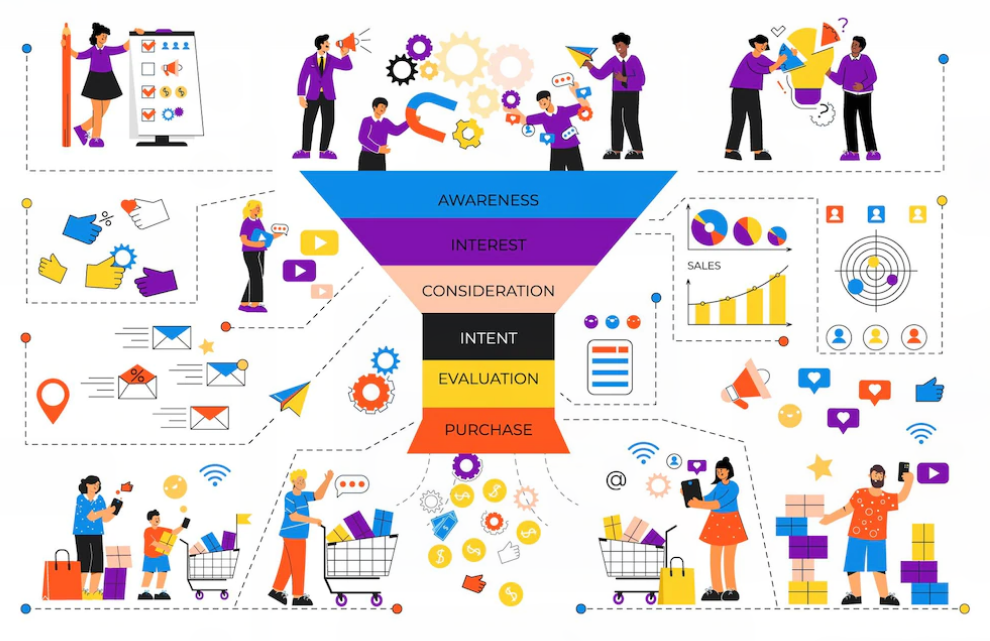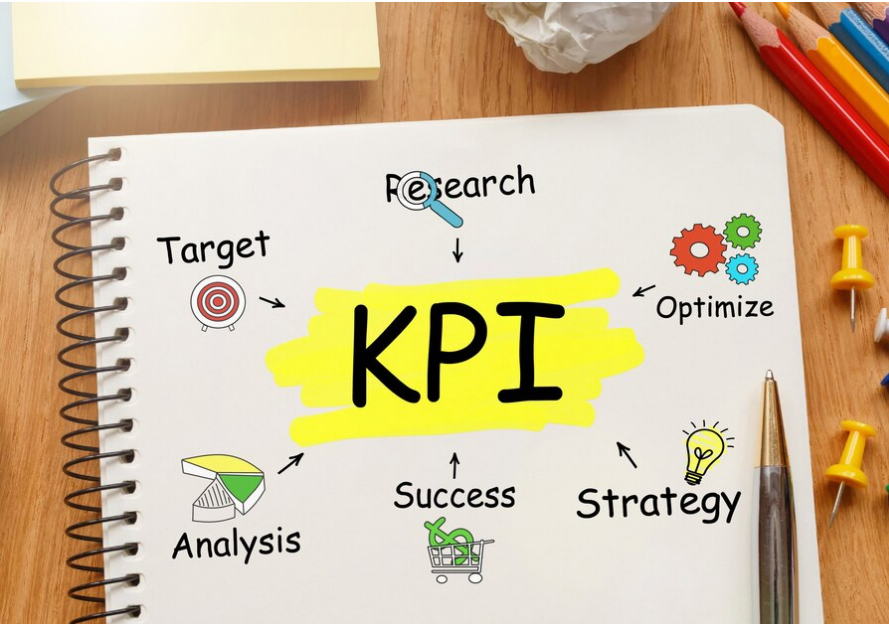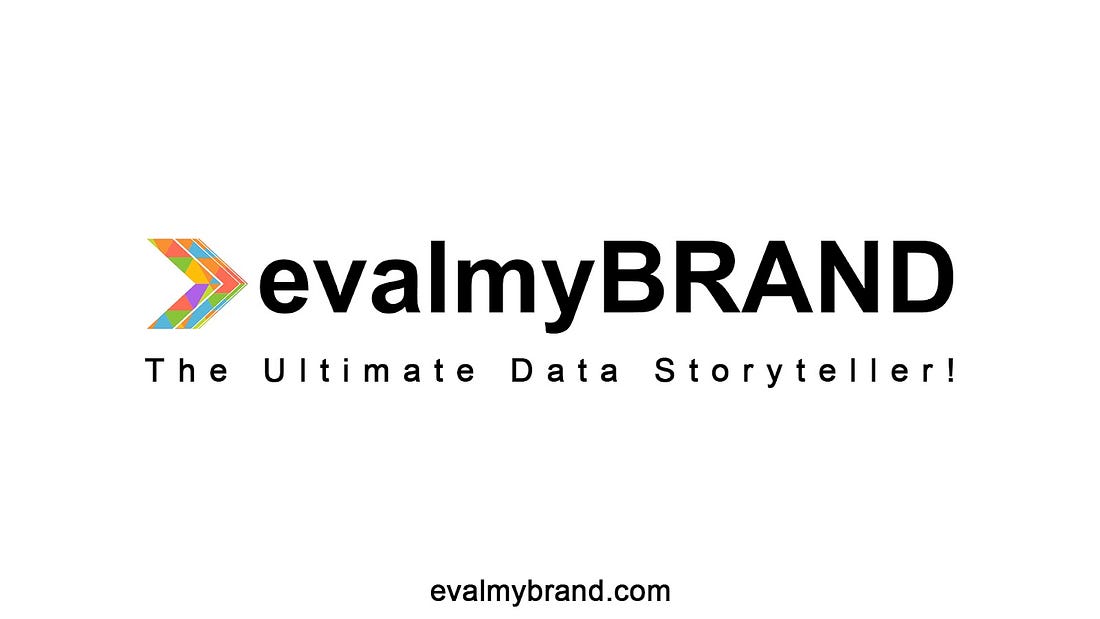
evalmyBRAND | Social Listening Blog Post

Imagine you own a small bakery, and you’ve just launched a new line of gluten-free pastries. You post about it on your social media pages, hoping to generate some buzz and attract new customers. Within a few hours, you receive hundreds of comments and messages from customers who are excited about your new products. However, amongst the positive feedback, you also notice a few negative comments from customers who are disappointed that you didn’t include any vegan options.
This scenario highlights the power of social media in marketing and the need for businesses to listen and respond to their customers. Social media provides businesses with a direct line of communication to their target audience, enabling them to build their brand reputation and engage with their customers. However, with the vast amount of data available on social media platforms, it can be overwhelming for businesses to monitor and analyze customer sentiment. This is where AI-based social listening tools come in, providing businesses with the ability to analyze customer sentiment and gain valuable insights that can be used to improve their marketing strategies and enhance their brand reputation.
Once businesses start monitoring and analyzing social media conversations through AI-based social listening tools, the next step is to generate responses to the insights gained. Here are some strategies that businesses can use to generate responses on social listening:
Respond to customer feedback: One of the primary reasons for using social listening tools is to monitor customer feedback and respond to it. This includes responding to both positive and negative feedback. Businesses can thank customers for positive feedback and address negative feedback by apologizing and offering solutions to the problem.
Identify trends: Social listening tools can help businesses identify emerging trends in their industry. By keeping trend analysis, businesses can develop products and services that cater to their customers’ needs and preferences.
Engage with influencers: Social media influencers have a significant impact on their followers’ purchasing decisions. By identifying relevant influencers in their industry and engaging with them, businesses can increase their reach and attract new customers.
Monitor competitors: Social listening tools can also be used to monitor competitors’ social media conversations. By analyzing their competitors’ social media conversations, businesses can identify gaps in their own marketing strategies and adjust accordingly.
Personalize responses: Social listening tools can provide businesses with insights into their customers’ preferences and behavior. By using this information to personalize their responses, businesses can create a more personal connection with their customers.
Generating responses on social listening is crucial for businesses looking to build their brand reputation and engage with their customers. By responding to customer feedback, identifying trends, engaging with influencers, monitoring competitors, and personalizing responses, businesses can create a more effective marketing strategy and achieve their marketing goals.
AI-based social listening is a technology that uses artificial intelligence (AI) to monitor and analyze social media conversations. These tools use natural language processing (NLP) algorithms to interpret the language used in social media posts, enabling businesses to gain insights into customer sentiment, preferences, and behavior.

The process of AI-based social listening involves four main steps:
Data Collection: AI-based social listening tools collect data from various social media platforms, including Facebook, Twitter, Instagram, and LinkedIn. The tools use APIs (Application Programming Interfaces) provided by these platforms to access data and gather relevant information.
Data Processing: Once the data is collected, the AI-based social listening tools use NLP algorithms to analyze the language used in social media conversations. These algorithms can identify patterns and themes in social media conversations, enabling businesses to gain insights into customer sentiment and behavior.
Data Analysis: After processing the data, the AI-based social listening tools analyze the information to identify trends, insights, and opportunities. These insights can be used to make data-driven decisions and improve marketing strategies.
Reporting: Finally, the AI-based social listening tools provide businesses with detailed reports that summarize the insights gained from social media conversations. These reports can be used to measure the success of marketing campaigns, track customer sentiment over time, and identify areas for improvement.
AI-based social listening is a technology that uses AI and NLP algorithms to monitor and analyze social media conversations. By analyzing the language used in social media conversations, businesses can gain insights into customer sentiment, preferences, and behavior, ultimately improving their marketing strategies and enhancing their brand reputation.
Benefits of AI-based social listening for marketing agencies: Discussing the advantages that marketing agencies can gain from using AI-based social listening tools, such as real-time feedback, identifying consumer trends, and competitor analysis

Marketing agencies face a constant challenge of keeping up with the ever-changing market trends and understanding their customers’ needs and preferences. With the increasing popularity of social media, businesses are turning to AI-based social listening tools to gather insights into customer behavior and sentiment. Marketing agencies that embrace this technology can gain several advantages, including real-time feedback, identifying consumer trends, and competitor analysis.
AI-based social listening tools can provide marketing agencies with real-time feedback on their marketing campaigns. These tools can monitor social media conversations, identify trends and themes, and measure sentiment towards a particular product or brand. This information can help agencies quickly identify issues with a campaign and make necessary adjustments to improve its effectiveness.
Marketing agencies can use AI-based social listening tools to identify emerging consumer trends. These tools can track customer conversations on social media platforms, analyze the language used, and identify patterns and themes. Agencies can use this information to develop marketing strategies that cater to their customers’ evolving needs and preferences.
AI-based social listening tools can also help marketing agencies monitor their competitors’ social media conversations. These tools can provide agencies with insights into their competitors’ marketing strategies, products, and customer sentiment. This information can be used to develop competitive marketing strategies that target customers more effectively.
Marketing agencies can also use AI-based social listening tools to monitor their clients’ brand reputation on social media platforms. These tools can identify potential issues and negative sentiment towards a brand and enable agencies to take appropriate action to address the concerns. This can help improve the client’s brand reputation and enhance customer satisfaction.
In conclusion, AI-based social listening tools provide marketing agencies with several advantages, including real-time feedback, identifying consumer trends, competitor analysis, and brand reputation management. These tools can help agencies develop more effective marketing strategies, improve customer engagement, and enhance their clients’ brand reputation. By embracing this technology, marketing agencies can stay ahead of the curve and provide their clients with the best possible service.
Identifying clear marketing goals is crucial for several reasons. Firstly, it provides a clear direction and purpose for using AI-based social listening tools. Without clear goals, it can be challenging to identify the relevant data to analyze and make data-driven decisions.
Secondly, identifying clear marketing goals helps businesses prioritize the most important data to collect and analyze. For instance, if a company’s goal is to improve customer satisfaction, they will need to collect and analyze data related to customer sentiment and feedback.
Thirdly, having clear marketing goals helps businesses measure the success of their marketing strategies. If a company’s goal is to increase brand awareness, they can use AI-based social listening tools to track social media mentions, track engagement rates, and measure the impact of their marketing campaigns.
Finally, clear marketing goals help businesses make better data-driven decisions. By knowing what they want to achieve, businesses can focus on the data that matters and identify trends, actionable insights, and opportunities to improve their marketing strategies and enhance their brand reputation.
In conclusion, identifying clear marketing goals is essential before using AI-based social listening tools. It provides businesses with a clear direction, helps prioritize relevant data, measures success, and enables better data-driven decisions. By setting clear marketing goals, businesses can leverage the power of AI-based social listening tools to improve customer engagement, enhance brand reputation, and achieve their marketing objectives.
Choosing the right social media platforms: Guidance on choosing the right social media platforms to monitor and analyze, based on target audience and industry
With so many social media platforms available, it can be challenging to choose the right ones to monitor and analyze. Here is some guidance on choosing the right social media platforms based on target audience and industry.
Know Your Target Audience:
The first step in choosing the right social media platforms is to understand your target audience. Consider the demographics, interests, and behavior of your customers. For example, if your target audience is primarily professionals, LinkedIn might be a more suitable platform than Instagram or TikTok.
Research Industry Trends:
Research industry trends and determine which social media platforms are most popular within your industry. For instance, Instagram is popular among fashion and beauty brands, while Twitter is more popular among news and media outlets.
Competitive Analysis:
Analyze the social media presence of your competitors to see which platforms they are using to engage with their customers. While you should not copy your competitors’ strategies entirely, it is essential to have a presence on the same platforms to remain competitive.
Consider Platform Capabilities:
Consider the capabilities of each platform and how they align with your marketing goals. For example, Instagram and Facebook offer robust advertising capabilities, while Twitter is better suited for real-time engagement and customer service.
Test and Measure:
Once you have identified the social media platforms to monitor and analyze, test your marketing strategies on these platforms and measure their effectiveness. This data can help you refine your strategies and improve customer engagement over time.
In conclusion, choosing the right social media platforms to monitor and analyze is critical to the success of your marketing strategies. By understanding your target audience, researching industry trends, analyzing competitor presence, considering platform capabilities, and testing and measuring, you can identify the most effective platforms for your business and achieve your marketing objectives.
Understanding consumer behavior: How AI-based social listening tools can help marketing agencies understand consumer behavior, including sentiment analysis and identifying influencers.
Social listening tools offer marketing agencies powerful insights into consumer behavior. Here are two ways they can help:

Sentiment Analysis:
AI-based social listening tools can analyze vast amounts of social media data to determine how customers feel about a brand, product, or service. This process, known as sentiment analysis, allows marketers to identify trends, monitor brand reputation, and respond to customer concerns in real-time. By understanding consumer sentiment, marketers can create targeted campaigns that resonate with their audience and improve brand reputation.
Identifying Influencers:
Influencers play a significant role in shaping consumer behavior, and AI-based social listening tools can help identify them. These tools can identify social media users with large followings who frequently engage with a brand or product. By collaborating with these influencers, marketers can increase brand awareness and reach a wider audience. AI-based social listening tools can also track the effectiveness of influencer campaigns, allowing marketers to measure ROI and refine their strategies.
Creating targeted campaigns: How to create effective marketing campaigns based on insights from AI-based social listening tools
Creating targeted marketing campaigns is a key benefit of using AI-based social listening tools. Here are some steps to create effective campaigns based on insights from these tools:
Analyze Customer Data:
Use AI-based social listening tools to analyze customer data and identify patterns and trends in customer behavior. This data can include customer demographics, preferences, and interests.
Develop Buyer Personas:
Based on the insights from the customer data analysis, develop buyer personas that represent your target audience. This will help you create marketing campaigns that resonate with your target audience and address their needs and pain points.
Create Personalized Content:
With the insights gained from AI-based social listening tools, you can create personalized content that appeals to your target audience. This could include blog posts, social media content, or email newsletters.
Use Social Media Ads:
Use AI-based social listening tools to identify the social media platforms where your target audience spends the most time. Then, create targeted ads on these platforms to reach your audience effectively.
Monitor Campaigns:
Continuously monitor the performance of your campaigns using AI-based social listening tools. Analyze customer feedback and make adjustments to optimize your campaigns.
AI-based social listening tools provide valuable insights that can help you create targeted marketing campaigns that resonate with your target audience. Use these insights to develop buyer personas, create personalized content, use social media ads, and monitor your campaigns’ performance. By doing so, you can create effective marketing campaigns that drive business growth.
Monitoring brand reputation: How to monitor brand reputation and respond to negative feedback in real-time

Monitoring brand reputation is a crucial aspect of any marketing strategy, and AI-based social listening tools can help in this regard. Here are some steps to monitor brand reputation and respond to negative feedback in real-time:
Set Up Brand Monitoring:
Use AI-based social listening tools to set up brand monitoring on social media platforms. This will help you track mentions of your brand, products, or services in real-time.
Monitor Feedback:
Customer Feedback Analysis, influencers, and other stakeholders using AI-based social listening tools. This will help you identify trends, customer sentiment, and potential issues that need to be addressed.
Respond to Feedback:
Respond to feedback promptly and professionally. Use AI-based social listening tools to track customer sentiment and identify potential issues before they escalate.
Address Negative Feedback:
Address negative feedback promptly and resolve any issues that customers have. This will help you maintain a positive brand image and reputation.
Analyze Feedback:
Analyze customer feedback using AI-based social listening tools to identify areas where you can improve your products or services. This feedback can also be used to develop new products or services that meet your customers’ needs.
Monitoring brand reputation and responding to negative feedback in real-time is essential for maintaining a positive brand image and reputation. Use AI-based social listening tools to monitor feedback, respond promptly and professionally, address negative feedback, and analyze customer feedback to improve your products and services. By doing so, you can strengthen your brand reputation and drive business growth.
Measuring success: The importance of measuring the success of marketing campaigns using KPIs and analytics from AI-based social listening tools
Here are some steps to measure the success of marketing campaigns using KPIs and analytics from AI-based social listening tools:

Define Key Performance Indicators (KPIs):
Identify the KPIs that are most relevant to your marketing goals, such as engagement rates, conversion rates, reach, and sentiment analysis.
Track Campaign Performance:
Use AI-based social listening tools to track campaign performance in real-time. This will help you identify trends, monitor customer sentiment, and measure the success of your campaigns against your KPIs.
Analyze Data:
Analyze the data collected by AI-based social listening tools to gain insights into campaign performance. This can include metrics such as engagement rates, conversion rates, reach, and sentiment analysis.
Adjust Your Strategy:
Use the insights gained from AI-based social listening tools to adjust your marketing strategy and optimize campaign performance. This can include changing messaging, adjusting targeting, or modifying creative elements.
Evaluate Results:
Regularly evaluate the results of your marketing campaigns against your KPIs to identify areas for improvement and make data-driven decisions for future campaigns.
Some KPIs that can be measured using AI-based social listening tools include:
Engagement Rate:
The percentage of people who interacted with your content, such as likes, shares, comments, and clicks.
Conversion Rate:
The percentage of people who took a desired action, such as making a purchase, after seeing your content.
Reach:
The number of people who saw your content.
Sentiment Analysis:
The analysis of customer sentiment towards your brand or campaign, measured as positive, negative, or neutral.
Share of Voice:
The percentage of the online conversation related to your brand compared to your competitors.
Audience Demographics:
The demographic characteristics of your audience, such as age, gender, location, and interests.
Influencer Engagement:
The level of engagement between your brand and influencers, measured by the number of mentions, shares, and interactions.
Response Time:
The average time it takes your brand to respond to customer inquiries or complaints on social media.
Customer Satisfaction:
The level of customer satisfaction with your brand or product, measured by sentiment analysis and customer feedback.
Brand Awareness:
The level of brand awareness among your target audience, measured by reach, impressions, and mentions.
These KPIs can help marketing agencies gain deeper insights into their marketing campaigns and optimize their strategies accordingly. By using AI-based social listening tools to track and measure these KPIs, businesses can improve their performance, enhance customer experience, and boost brand reputation.
Implementing AI-based social listening tools: Practical guidance on implementing AI-based social listening tools, including selecting the right tool and training staff
To further simplify the process of implementing AI-based social listening tools, marketing agencies can consider using a platform such as evalmyBRAND. evalmyBRAND is an AI-powered social listening tool that helps businesses monitor their brand reputation, identify most discussed themes and keywords, get a quick view of prioritized customer queries for quick redressal, crisis management, track consumer sentiment and much more.

With evalmyBRAND, marketing agencies can effectively analyze social media data to gain insights into their customers’ preferences, opinions, and behaviors. The platform provides real-time monitoring of multiple social media channels, allowing businesses to respond to customer feedback and concerns in a timely manner. In total, evalmyBRAND acts as the first resort to respond to customer feedback.
evalmyBRAND also provides customizable reports and dashboards, making it easy to track KPIs and measure the success of marketing campaigns. With advanced sentiment analysis and machine learning algorithms, the platform provides accurate insights and helps businesses make data-driven decisions.
Implementing AI-based social listening tools such as evalmyBRAND can bring significant benefits to marketing agencies, including improving customer experience, enhancing brand reputation, and increasing customer loyalty. With the right tools and strategies in place, marketing agencies can harness the power of social media to drive business success.
Summarizing the benefits of AI-based social listening for marketing agencies and the need for continuous monitoring and adjustment
AI-based social listening tools can provide marketing agencies with a wealth of valuable insights into consumer behavior, preferences, and sentiment. By monitoring social media channels in real-time and using advanced analytics, marketing agencies can create targeted campaigns, improve customer experience, and enhance brand reputation.
However, it’s important to remember that social media is constantly evolving, and marketing agencies need to continuously monitor and adjust their strategies to stay ahead of the curve. This means selecting the right social media platforms to monitor, setting clear goals and KPIs, and regularly reviewing and analyzing the data.
By implementing AI-based social listening tools such as evalmyBRAND, marketing agencies can gain a competitive edge in today’s digital landscape. With the ability to track customer sentiment and behavior, identify trends, and measure campaign success, marketing agencies can make informed decisions and drive business growth.
In short, AI-based social listening is a valuable tool for marketing agencies looking to improve their marketing strategies and grow their business. By embracing this technology and using it to its full potential, marketing agencies can create impactful campaigns, build strong relationships with customers, and achieve long-term success.

Amplify Your Product Brand’s Success on Instagram with Social Listening and evalmyBRAND Amplify Your Product Brand’s Success on Instagram with Social Listening and evalmyBRAND Amplify

The Power of Social Listening: Unveiling the Secrets to a Successful Content Strategy Facebook Twitter LinkedIn Crafting an effective content strategy is paramount in today’s

8 Effective Methods for Market Research Using Social Listening Facebook Twitter LinkedIn In the ever-evolving digital world, businesses now have vast access to customer data

Social Listening and Influencer Marketing: A Powerful Combination for Brands Facebook Twitter LinkedIn In the dynamic realm of digital marketing, staying ahead of the competition

How to safeguard your brand with online reputation management Facebook Twitter LinkedIn In today’s digital age, where information spreads at lightning speed and online conversations

Using AI-led Insights to understand customer behaviour in 2023 Facebook Twitter LinkedIn In today’s highly competitive business landscape, understanding customer behavior is key to developing